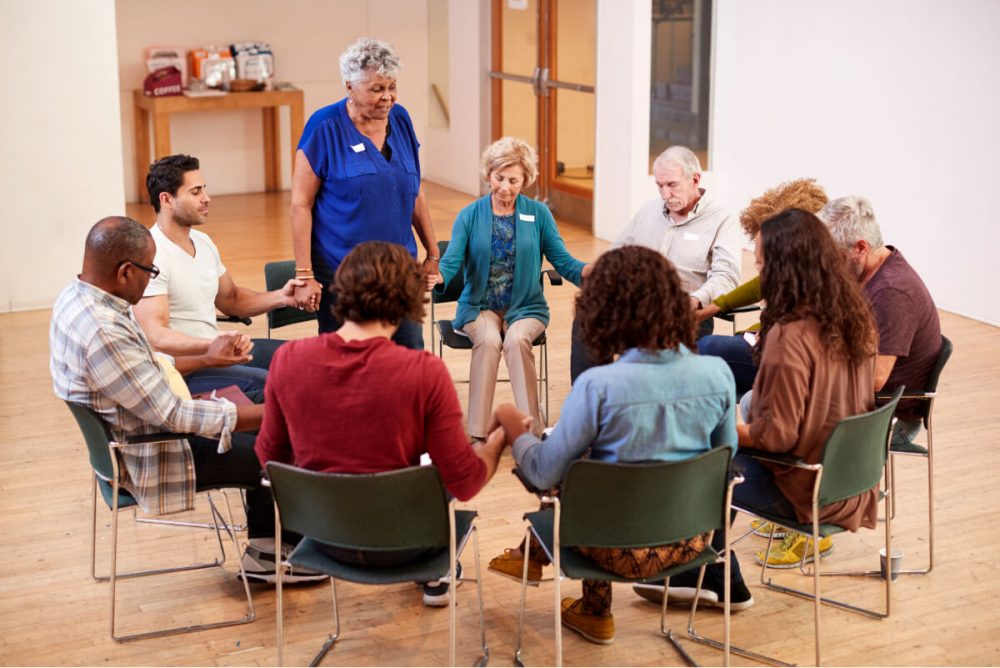Unbound Empowerment: Find AA Meetings in Utica, NY

Situated in central New York, Utica embodies a city steeped in a rich history and a mosaic of cultural influences drawn from Italian, Irish, and Eastern European roots. Its culinary prowess, renowned for delicacies like the famed tomato pie and flavorful greens, adds to Utica’s captivating charm. Landmarks such as the historic Matt Brewing Company, dating back to the mid-1800s, echo the city’s heritage. Utica proudly holds a mantle of innovation, being the birthplace of the instant coffee process and leading as the first city to introduce electricity to its residents. The Munson-Williams-Proctor Arts Institute propels the city’s vibrant art scene, showcasing diverse artworks and exhibitions that celebrate its cultural richness. Utica stands as a city that cherishes its history while embracing transformation. Yet, within this vibrant tapestry lies a sobering reality: concerning statistics reveal a community where excessive alcohol consumption intertwines with a surge in crime rates. The city’s crime rates soar 71% above the national average per 100,000 residents, painting a stark picture. Nearly seven daily crimes, encompassing both violent and property offenses, underscore the intricate connection between alcohol and the city’s criminal landscape. It’s in this context that the community rallies to address this correlation, acknowledging the urgency to support those battling Alcohol Use Disorder (AUD). AA Meetings in Utica NY serve as vital sanctuaries, providing structured programs and crucial support to individuals navigating the complexities of AUD while addressing the deeper issues entwining alcohol and crime. Reach out to NYC AA Meetings today to begin your path to sobriety.
Can I drink beer in a paper bag in NYC?
In the vibrant streets of New York City, regulations firmly prohibit public alcohol consumption, impervious to any attempts at disguise. The persistent belief that enclosing a bottle in a paper bag provides legal immunity remains nothing more than a myth—unsupported by the city’s laws. New York City’s stringent open container statutes uphold an unyielding position against consuming alcohol in public spaces, regardless of the busy streets or the peaceful ambiance of its parks. Whether strolling through bustling avenues, seeking tranquility within green spaces, or riding public transportation, indulging in public drinking risks potential fines or penalties. NYC remains resolute in its opposition to displaying open alcohol containers in communal spaces, maintaining a steadfast stance against such behavior.
What is the #1 drunk state in the US?
America has a deep connection with alcohol, and some states stand out in this story. California leads, gulping down 85.7 million gallons in 2020, setting the pace for the nation’s love of drinks. Texas, Florida, New York, and Illinois follow suit, blending in the top five, adding to the country’s lively drinking scene. Amidst this, some states like Wyoming, Alaska, and South Dakota prefer a slower, more thoughtful approach to drinking. They take their time, creating a calm rhythm amidst the lively atmosphere. However, with this celebration comes a warning about the dangers of too much drinking, especially with Alcohol Use Disorder. Excessive drinking in leading states raises concerns about this disorder, highlighting the need for moderation and responsible drinking. Alcohol isn’t just about fun; it carries a sad legacy in alcohol-related deaths. These numbers represent real losses, ending many lives too soon. Each death tells a sad story of families torn apart, dreams unfulfilled, and lives cut short. Behind these numbers lie heartfelt stories of people lost to alcohol’s grip. It’s a strong reminder of the severe consequences of drinking too much and the urgent need to raise awareness to prevent more tragedies. These deaths go beyond numbers; they call for a careful and balanced approach to alcohol—urging everyone to respect their limits.
What state has the most bars?
In the tapestry of American nightlife, New York, California, and Wisconsin emerge as star-studded states, boasting vibrant arrays of 5,756, 5,519, and 4,961 bars and nightclubs, respectively. These glittering beacons of revelry paint their cities with vibrant hues, offering an exuberant feast for the senses. Yet, amid the pulsating beats and clinking glasses lies a nuanced narrative. The abundance of these establishments, while emblematic of spirited social scenes, can also serve as breeding grounds for Alcohol Use Disorder (AUD). The sheer multitude of bars and nightclubs might inadvertently fuel excessive drinking habits, contributing to the challenges of AUD among individuals who frequent these lively locales. In 2022, roughly 28% of traffic-related fatalities were attributed to alcohol-impaired driving. This percentage tends to vary yearly due to factors like law enforcement actions, awareness initiatives, and shifts in societal conduct. Thus, within the effervescent aura of these nightlife hubs lies a nuanced conversation about the balance between celebration and the potential pitfalls of excessive alcohol consumption.
Utica, NY AA Meetings: Strengthening Unity
In addressing alcohol addiction in Utica, a comprehensive strategy intertwines support, education, and active community engagement. AA Meetings in Utica, NY unite behind initiatives that offer accessible and empathetic resources, encompassing support groups that cultivate a nurturing space for those journeying towards recovery, along with counseling services and informative programs. Engaging the community is pivotal, aiming to raise awareness, dismantle societal stigmas, and facilitate open dialogues concerning alcohol addiction. Collaborations among healthcare providers, local groups, and government bodies enhance treatment options and interventions comprehensively. NYC AA Meetings adopts a holistic approach, fostering a supportive environment that not only encourages recovery but also tackles underlying causes, empowering individuals to reclaim control from alcohol addiction’s hold on their lives.
Resources: